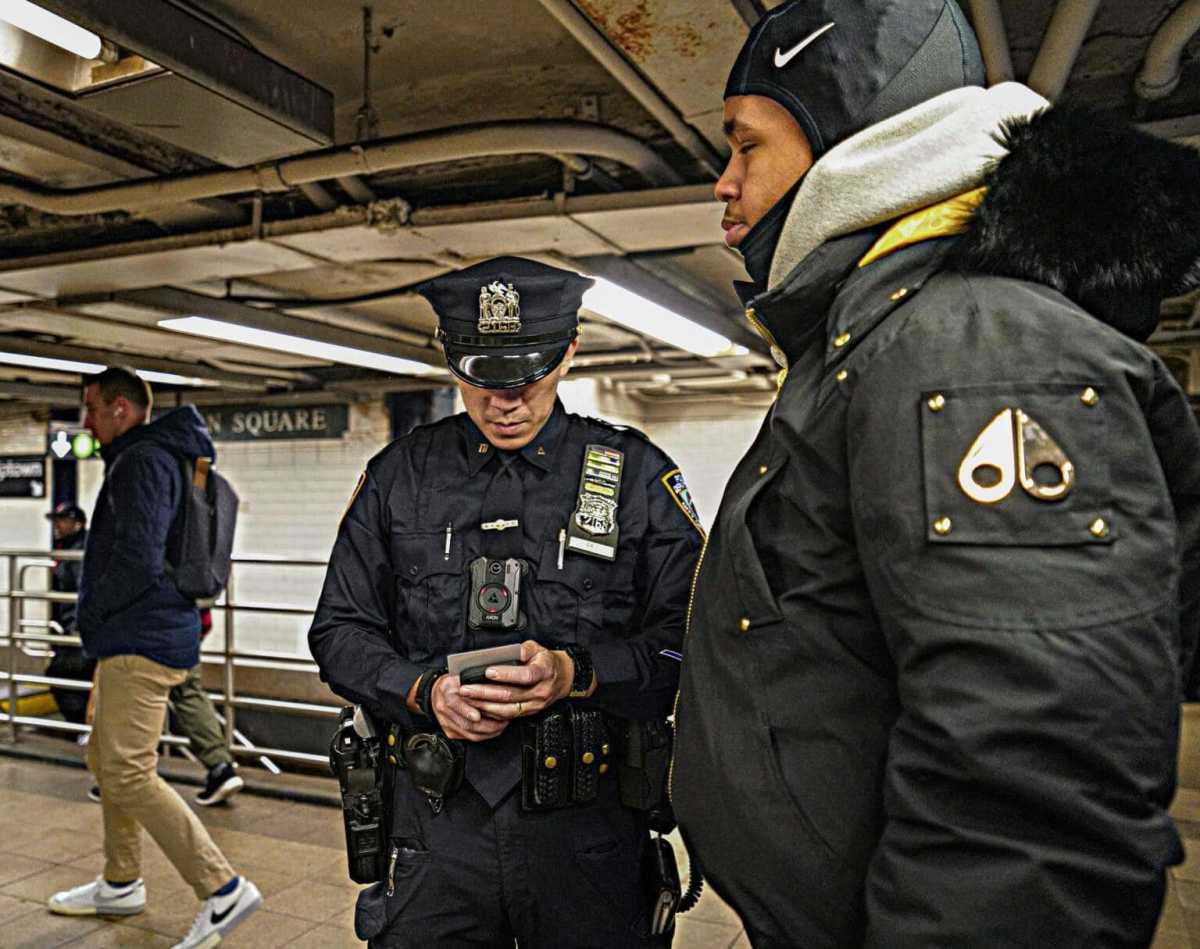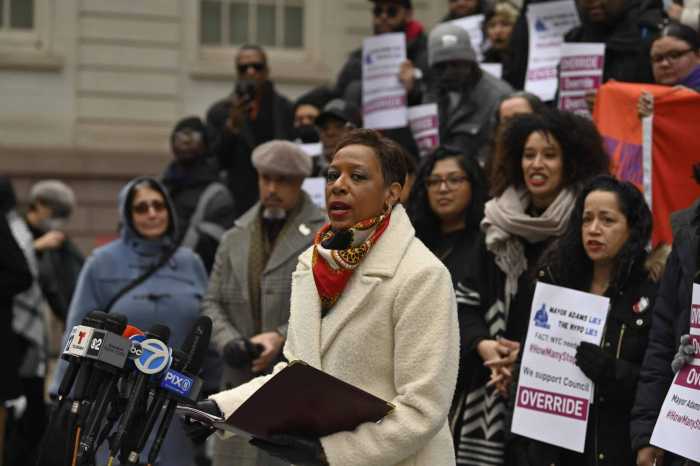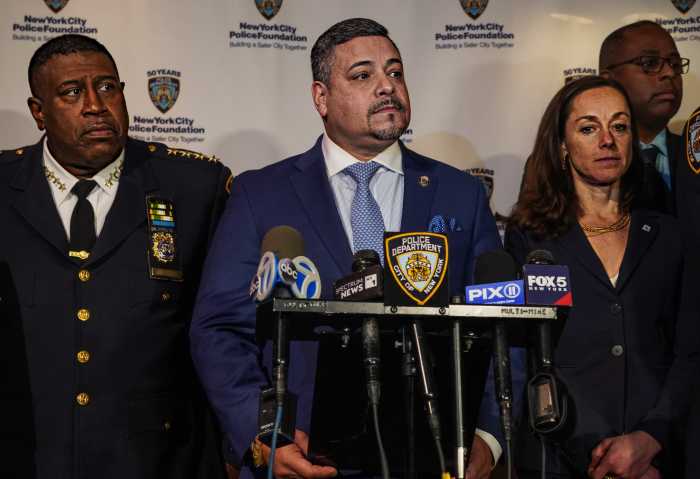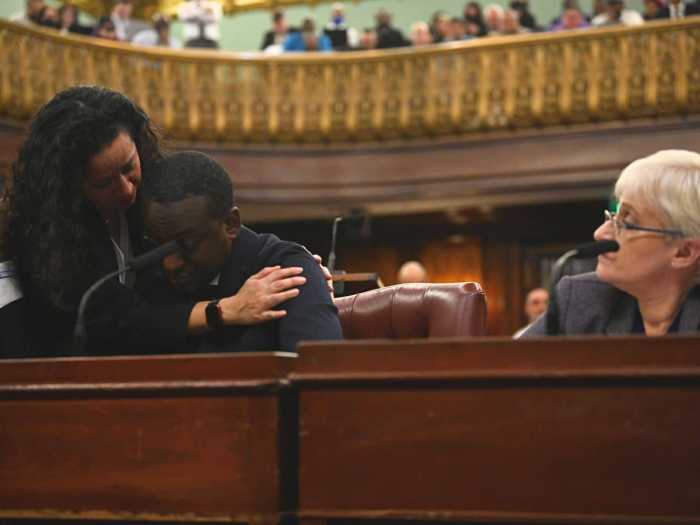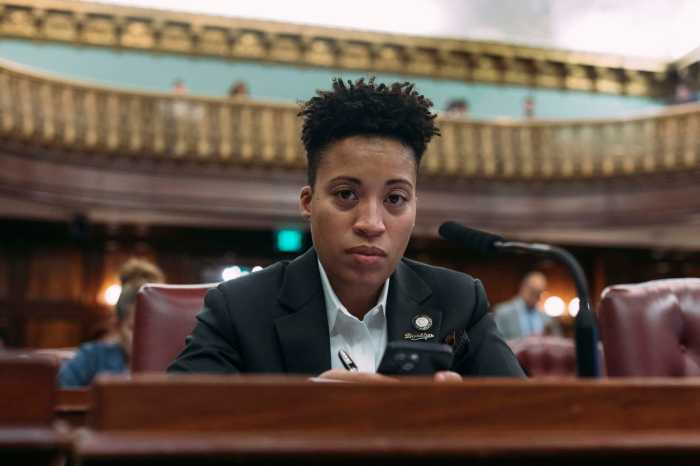As the City Council worked to override on Mayor Eric Adams’ veto of the How Many Stops Act Tuesday, the NYPD’s legal department issued a grave warning about the police reporting bill’s potential ramifications.
NYPD Executive Director and Counsel for Chief of Department Elizabeth Moehle sat down with amNewYork Metro on Tuesday to discuss the bill that some have been championing as a new step in police transparency — while others charge it will handcuff cops with unnecessary paperwork to document most every interaction with the public.
Moehle also believes that cops will be late responding to some 911 calls.
“This is going to delay response times,” Moehle said. “I can say that if these forms are being filled out right after the response to the job, that it’s going to delay the officers from responding to the next job, which is going to add more time to all of our responses and add more jobs into the queue.”
The meaning of the How Many Stops Act has been widely debated in recent weeks between City Council members and Public Advocate Jumaane Williams — who believe that the impact of the law is being overblown because the simplest interactions, such as a police officer saying hello to someone, would not need to be documented — and Mayor Adams and police brass, who say the dealings that do have to be logged will have a profound and negative impact on policing.

The main concern centers around Level 1 stops, which Moehle says are not so much stops as they are inquires. She states that officers investigating a crime will often stop and ask residents or passersby what they have seen or heard, something police feel is instrumental in solving cases.
“A level one encounter is absolutely not a stop. It’s an inquiry, that somebody is absolutely free to leave,” Moehle explained. “So every single time that you’re asking somebody who is at that location, ‘Have you seen anything? Have you heard anything? Did you call 911?’ Every single one of those is a level one encounter. So we don’t believe that person had anything to do with what happened, but we just want to know if they had any observations.”
Under the How Many Stops Act, cops would be required to fill out documents regarding every single person quizzed about an investigation, even if they merely state they have not seen anything and move on. For Moehle, the issues arises at times that require mass searches, such as during missing person investigations or when a dangerous criminal is outstanding. Police say every second counts and if cops are tied up doing paperwork it could lead to preventable deaths.
Moehle used the recent citywide manhunt for stabbing suspect Jermain Rigueur as one example, explaining that cops armed with photos of the suspect were dispatched across the five boroughs and asked those riding buses and trains if they had seen the alleged stabber.
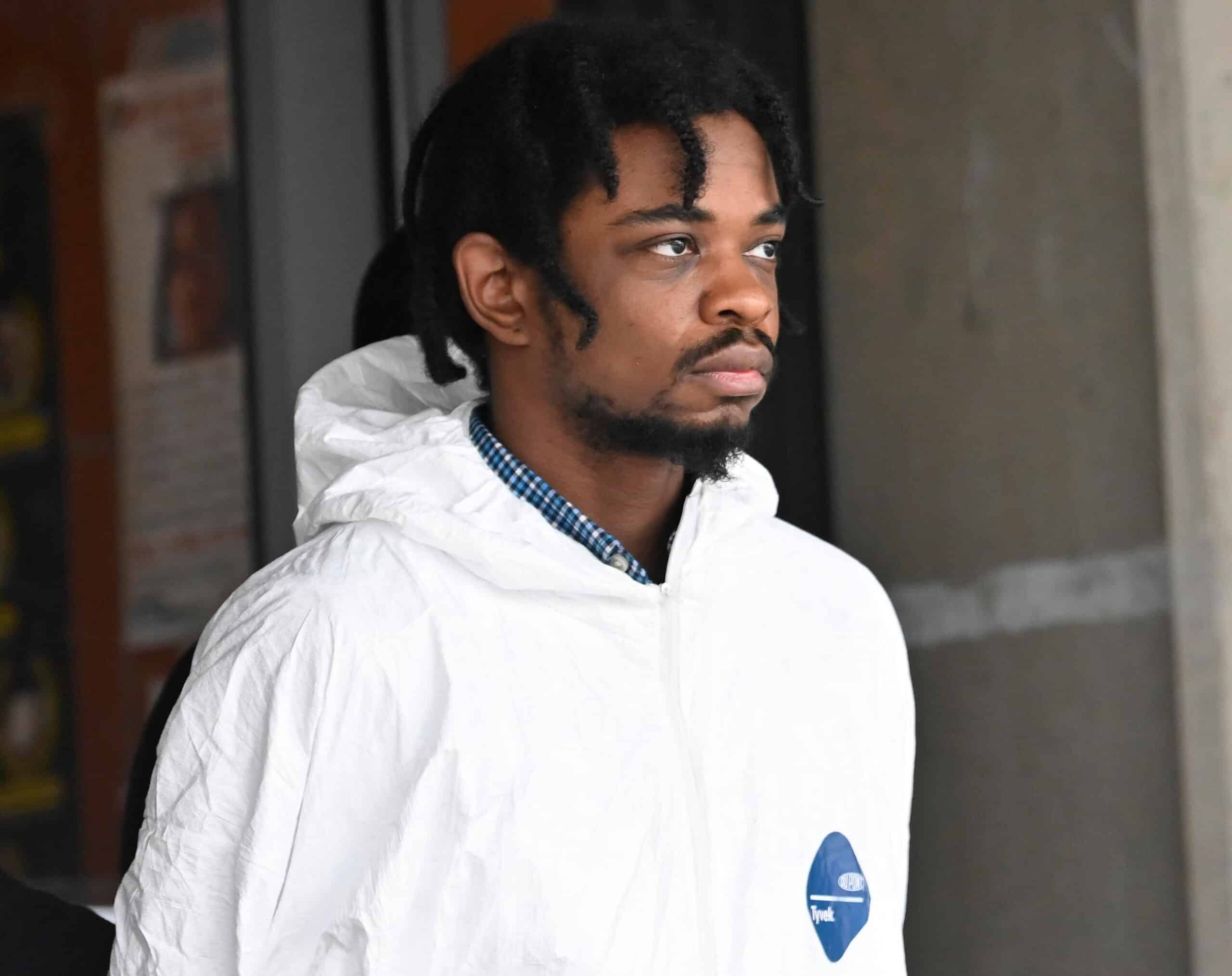
“Every single one of those people that was asked that question, a form would need to be filled out. So, the form that needs to be filled out has 11 different questions that need to be answered. Many of them are checkboxes or quick answers. However, there’s still a portion on there that is what we call a narrative that requires the officer to write a little story about the encounter,” Moehle told amNewYork Metro. “We approximate that’s going to take minutes, not seconds. And if that’s done as the canvassing is happening, it’s going to delay the additional canvassing.”
Proponents of the How Many Stops Act have argued the questions for a Level 1 encounter could easily be folded into digital questionnaires that officers already to use to document other interactions and responses.
Moehle says if the reports are not made at the time of canvassing, officers would be forced to rewatch their body camera footage at the end of their shift, leading to extensive overtime hours that are likely not in the cards due to recent budget cuts. With the most realistic scenario being cops filing out the paperwork during their shifts, Moehle believes it could lead to fatal consequences.
“In the stabbing situation, luckily it did not result in any fatalities — but that could have. And if we would not have apprehend him as quickly as we did, it could have continued and resulted in much worse situations,” Moehle said.
Moehle also says some cops might have to be taken off the street to undergo training for the paperwork, further causing staffing issues within the department.
Read more: Mayor Adams Faces Protests During State of the City



